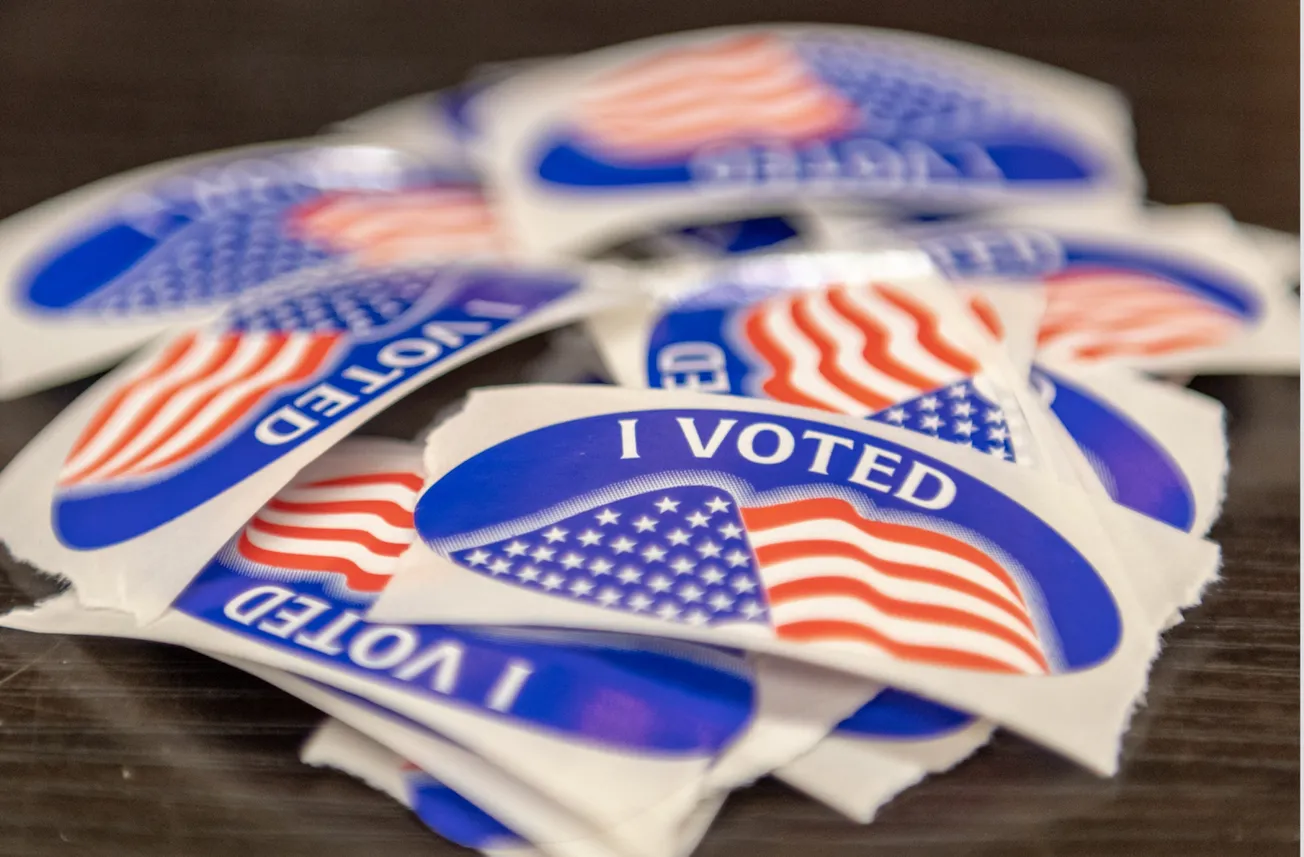Table of Contents
In the midst of devastating wildfires, California governor Gavin Newsom told his 1.9 million Twitter followers, “Climate change is REAL. So please - VOTE.”
His statement wasn’t received as an admission of incompetence, or as a call to vote for a new candidate in the next gubernatorial race, but rather as a serious commentary on the urgency of electoral participation.
Unfortunately, Newsom’s incoherence is representative of a broader Orwellian drift in the national conversation around voting. Celebrities and corporations promote the act of voting itself, rather than the issues at stake, as the cure for all social ills. Worse, universities like Stanford have undertaken a massive invasion of student privacy, through active enforcement of student voter registration.
The feigned commitment of prominent Progressives to an abstract idea of “voting” is fundamentally dishonest. None of the celebrities or university presidents exhorting people to “VOTE” would be happy if reluctant voters turned out to be Trump supporters. Many of those who cry “VOTE” the loudest are the very same who have undermined the democratic process by claiming that Trump is #NotMyPresident.
It appears that the Democratic Party has learned its lesson from 2016, when it also selected and promoted a candidate with historically low enthusiasm. Attempting to portray Secretary Clinton as an icon of feminism proved insufficient to get out the “VOTE.” So, the Democratic Party is trying a new tack: drumming up support around an abstract civic duty, like democratic participation, in the hopes that such a lofty cause will be more compelling than an aged candidate with a shaky track record of implementing the liberal policies so popular on campuses like Stanford’s.
Since young (and wealthy) voters tend to skew left, advertising the importance of voting on Instagram model accounts, in Urban Outfitters franchises, or at colleges like Stanford which prepare their students to join the educated elite has a relatively low chance of accidentally turning out too many Trump voters.
Corporations have gotten in on the act as well. Gucci, for example, announced that its Changemakers initiative will partner with, and help fund, the nonprofit organization When We All Vote. In the announcement, Gucci wrote that, “the focus is not on who people are voting for, but that 18 to 24-year-olds are exercising their fundamental right to vote.” However, Gucci’s, and other corporations', claims of non-partisanship are laughable: Michelle Obama chairs the board of When We All Vote. These corporate and social initiatives are clearly designed to appeal to young, Progressive customers for whom “VOTE” means “VOTE Democrat.”
Never one to buck a trend, the Stanford administration is working hard to increase voting among students. After low turnout among the student body in the 2014 and the 2016 elections, the University created Stanford Votes, a ‘nonpartisan’ organization which increased student participation in elections from 16.9% in 2014 to 42.7% in 2018.
Not content with encouraging voting and providing registration resources, Stanford decided that politically inactive students must be forced to care. In 2018, the administration began to place enrollment holds, which prevent course registration, on the accounts of students that have yet to “acknowledge the recommendation of civic engagement.” There is something oddly Sovietic about requiring students to recognize Stanford’s “recommendation” of how to exercise their rights prior to enrolling in classes.
The Stanford Athletics department's committee on Diversity, Equity and Inclusion is also committed to increasing voter registration in order to support “inclusion and belonging,” and to achieve this goal they are “tracking and celebrating” students who register to vote, and asking athletes to update “proof of their registration.” This “tracking” means that athletes must submit screenshots of their voter registration, which contains personal information, without explaining how this data will be used, who has access to it, or what privacy safeguards are in place.
One wonders, why does Stanford feel justified in invading the private lives of its students to keep abreast of their political activities? Sports teams are not advocacy organizations, and are obviously not designed with the purpose of increasing civic engagement. Athletic organizations have power over students’ scholarships, playing times, and awards, so keeping track of whether students are registered to vote, with implications for their playing career, is an absurd abuse of power.
The school is using its academic and athletic leverage to monitor students exercising their rights as citizens. We reject the idea that participating in Stanford’s academic and athletic life requires keeping the university abreast of your political activities.
The ability to engage, or disengage, from electoral participation is the right of every student and citizen. It is clear that the fixation of politicians, celebrities, and corporations on increasing youth-voter turnout is fundamentally partisan and self-serving. It is also clear that the totalitarian manner in which Stanford uses its influence and power to affect the political activities of the student body is inappropriate. It demonstrates the administration’s desire to control all aspects of student life, and its belief that no activity is so private that Stanford cannot interfere.









